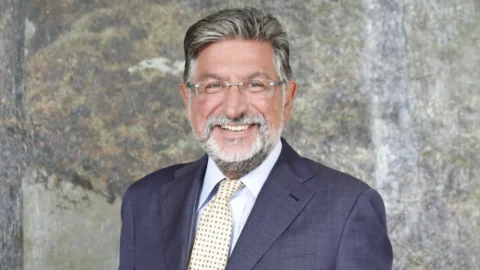I family office, who manage the fortunes of many of the world's super-rich, are boosting their own allocations to high-quality, short-term fixed income. They are also planning to increase holdings in emerging market equities following perceptions of a US dollar surging. Hedge fund allocations have increased in line with an increased emphasis on active management and are planning to further diversify private market allocations. According to new relationship of the asset manager UBS, these are just a few of the many portfolio changes they are implementing in response to changing market conditions and concerns about the geopolitical environment and inflation. And in a less secure world, there is room for more professionalisation beyond investment. For example, although family offices consider supporting the generational handover of wealth to be their main purpose, the survey reveals that many do not have the necessary processes, governance or risk management in place. Regionally, while continuing to hold nearly half of their North America, family offices expect to increase allocations in Western Europe for the first time in several years. Additionally, nearly a third plan to increase and expand allocations in the Asia-Pacific region.
The survey involved 230 individual family offices worldwide, with an average total net worth of $2,2 billion.
UBS Global Family Office Report 2023
This year's report shows that family offices are planning the biggest shift in strategic asset allocation in several years. After the end of a period of near zero interest rates, actively managed balanced portfolios are making a comeback. The greatest trend reversal can be found in the segment of fixed income developed markets, as following three years of declining bond holdings, nearly four in ten (38%) family offices expect their bond exposures to increase over the next five years. Fixed income is currently the most widespread source of diversification, with more than a third (37%) of the family offices surveyed moving towards high-quality and short-duration bonds, thanks to their asset protection, yield and capital appreciation features. Over the next five years, respondents still expect to increase their allocation to risk assets, with 34% intending to expand their exposure to emerging equities, following the dollar's peak and the reopening of the Chinese economy.
As highlighted in last year's report, while family offices continue to show a strong tendency to include alternative investments in order to contribute to portfolio diversification, on the other they are reorienting their allocation. The allocations in hedge funds rose from 4% to 7%, while those in direct private equity they dropped from 13% to 9%. Family offices also plan to reduce investments in real estate market Next year. Overall, this change was due to a higher allocation in funds of private equity, private debts e infrastructure.
Opportunities in a wide range of alternative investments
Active management is making a comeback, with 35% of family offices relying more on investment manager selection and active management to increase diversification within the portfolio. Family offices also believe that the hedge funds have the ability to generate investment returns, while monetary policy reduces excess financial liquidity and macroeconomic uncertainty persists. Nearly three-quarters of respondents (73%) believe hedge funds will meet or exceed their return targets over the next 12 months.
Overall, 41% of family offices plan to increase their investments in direct private equity in the next 5 years. Although these investments will contract during 2023, this decline will be partially offset by the increase in the allocation to private equity funds and by those foreseen in private debt and infrastructure. Family offices that invest in private equity prefer to do so through funds (56%) as they usually offer good diversification and allow them access to markets where they lack in-house expertise.
Looking ahead to the next 12 months, 45% who hold private equity investments plan to increase the allocation of their portfolios to the private equity secondary market. This data anticipates the trend according to which some institutional investors will be forced to rebalance their portfolios, due to declines in public markets and also in light of the fact that it will be difficult to exit through IPOs.
Family offices provide for a deposit reduction of the allocations in the real estate market in 2023, but within five years a third of them (33%) expect to increase them again. This factor comes against a high-rate environment in 2023, with some weakening of property prices, before easier access to credit occurs and lower valuations begin to support the asset class again.
Geopolitical uncertainty remains the primary concern
Overall, family offices were cautious on current markets in the face of uncertain growth prospects in developed economies, as well as tighter credit conditions and heightened geopolitical tensions. In fact, thegeopolitical uncertainty surpassed inflation as the top concern of family offices globally, followed by recession e inflation.
Family offices are also increasing their allocation to countries that have been least favored in the past. Although half of the assets are still allocated to North America, over a quarter of respondents expect to increase allocations in Western Europe over the next five years and nearly a third plan to increase and expand exposure in theAsia-Pacific.
Regional results
United States
According to the report, the priority of US family offices is to support the generational transfer of wealth (76%). 63% already have an estate succession plan for their family members, but only 38% have created a succession plan for the entire estate managed by the family office. The investment allocation in real estate (21%) and hedge funds (10%) is the highest among global peers. Unlike other regions, the recession is the biggest concern for US family offices and the cash allocation is the least conservative (7%).
Latin america
With respect to global peers, ifamily office of Latin America recorded the highest allocation to fixed income (30%). The real estate allocation is the lowest (5%) and only a fifth of respondents (20%) use hedge funds to diversify their portfolio. 60% of family offices in Latin America do not invest in decentralized finance and technology.
Pacific Asia
The highest allocation of the Asia-Pacific family office it is registered in the equity segment (37%) and almost half of respondents (46%) use hedge funds as a source of portfolio diversification. Among those who invest in private equity, 31% make more use of direct investments more than other regions and 77% of their private equity investments are concentrated in technology. From an investment theme perspective, medical devices and healthcare technologies are the most prevalent (76%). Asia-Pacific family offices also show a preference for the domestic market, with 51% of assets invested in the region, including China.
Europe (excluding Switzerland)
I family offices in Europe they have earmarked 11% of their investments in real estate, with 30% planning to increase their allocations over the next five years. 94% manage strategic asset allocation in-house and 75% agree that illiquidity leads to increased returns. After digital transformation (79%), automation and robotics are the preferred investment themes (75%).
Switzerland
Finally, the main purpose of the Swiss family offices is to support the generational transfer of wealth (73%). 43% have developed a succession plan for family members, but only 35% have created a succession plan for the entire estate managed by family offices. Compared to peers in other regions, Swiss respondents have the highest allocation in real estate (18%), cash (13%) and art & antiques (4%), while the lowest allocation is recorded in hedge funds (4%).





